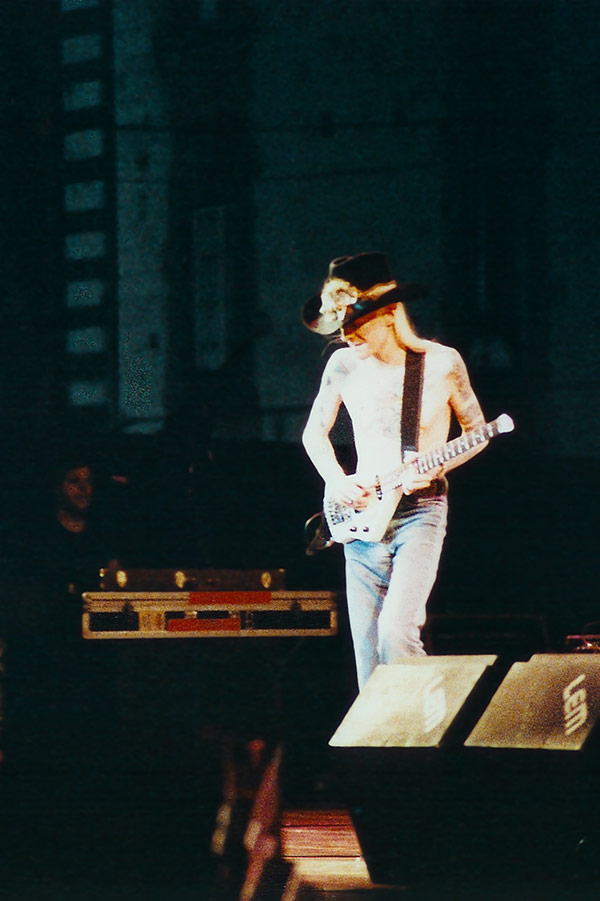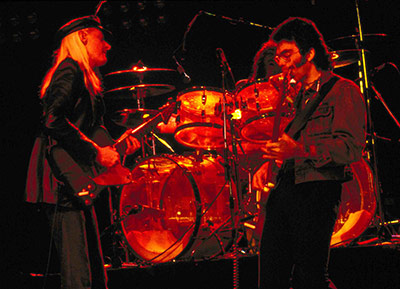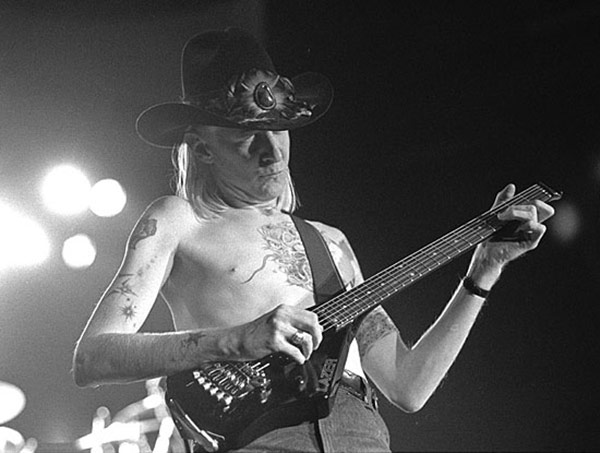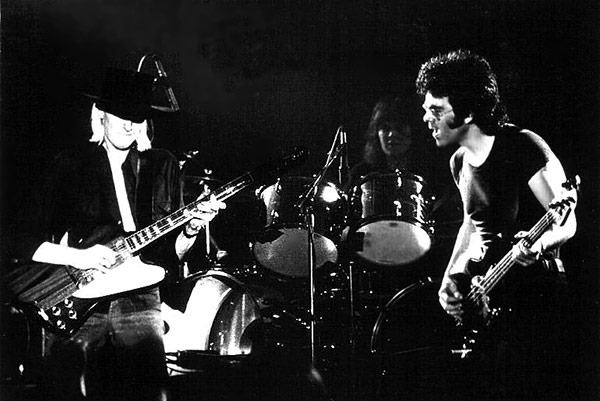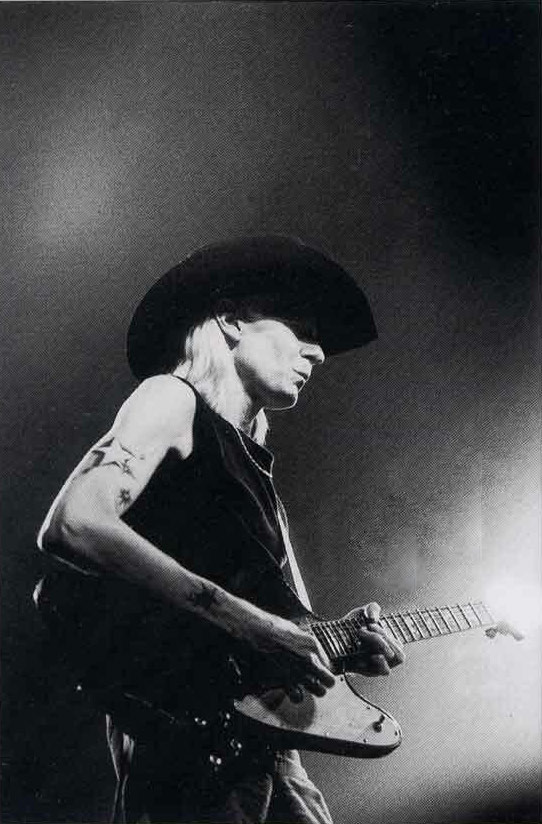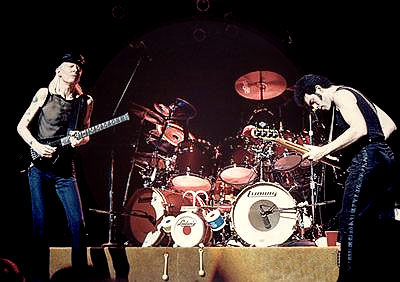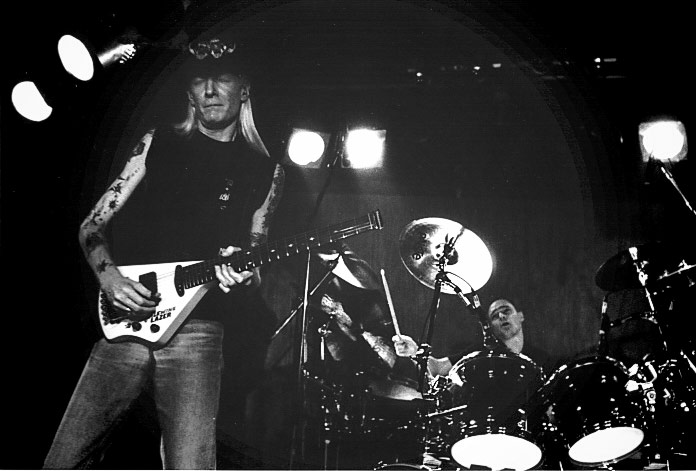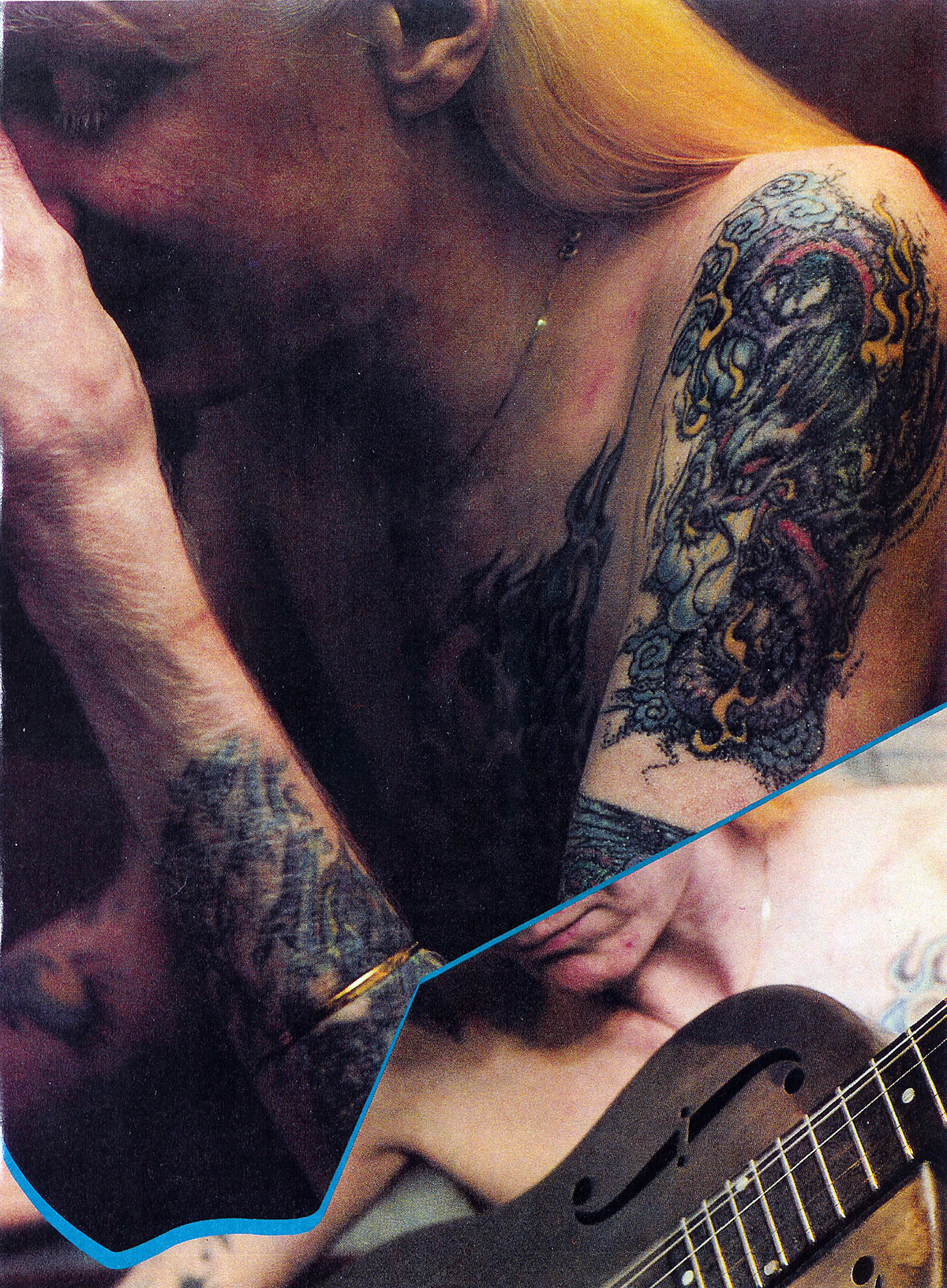Johnny Winter in 1988: A Legendary Year of Blues and Rock Mastery
-
In 1988, Johnny Winter embarked on a prolific year marked by the release of his album Winter of '88, which showcased his enduring guitar prowess. Produced by Terry Manning, the album blended Winter's signature raw blues sound with a modern edge, appealing to both long-time fans and new listeners. His tour supporting the album took him to numerous venues across the United States, with notable international performances, including headlining the Blues Festival at Piazza Duomo in Pistoia, Italy, on 1 July and concerts across Canada in September. Winter's concerts, such as at the Milan Blues Festival and the Diamond Club in Toronto, exemplified his commitment to live performance, further cementing his legendary status in the blues-rock genre. Throughout the year, Winter continued to captivate audiences with his fierce guitar skills and unwavering dedication to the blues, drawing both young and old fans alike.
This photograph captures Johnny Winter in an electrifying live performance at the Blues Festival held at Piazza Duomo, Pistoia, Italy, on Friday, 1 July 1988. Bathed in warm stage lighting, he commands attention at center stage. Shirtless and lean, Winter’s tattooed arms are visible as he grips his guitar, a sleek electric model slung low across his torso by a black strap. His long, pale blond hair spills from beneath a dramatic black hat adorned with a feather, giving him an unmistakable silhouette against the dark backdrop. He appears deeply immersed in the music, head tilted slightly down as his fingers work the fretboard with precision. In the foreground, angled stage monitors with the logo “Lem” point toward him, while racks of equipment and the shadowed outlines of other stage elements fade into darkness, emphasizing the focus on Winter himself. The photo conveys not only the raw energy of the performance but also Winter’s unique stage presence, combining his iconic look with the intensity of his blues guitar mastery.